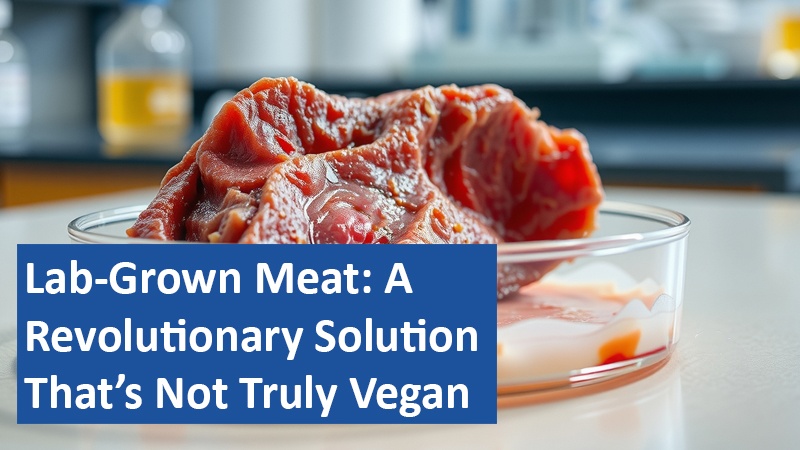Lab-grown meat, or in-vitro meat, offers a revolutionary approach to producing meat without slaughtering animals. However, the debate over whether this innovation aligns with vegan principles continues to divide opinion. According to the Vegan Society, lab-grown meat is not and may never be considered vegan.
By Julian James
The Science Behind Lab-Grown Meat

Lab-grown meat is created using muscle stem cells extracted from live animals through a biopsy, which does not require killing the animal. These cells are cultivated in a bioreactor using a nutrient solution and growth serum, forming muscle fibers that combine with lab-cultured fat cells to create meat. While this process reduces animal slaughter, the involvement of animal-derived cells raises questions about its classification as a vegan product.
The Vegan Society’s Position
In a recent statement, the Vegan Society acknowledged that lab-grown meat could help reduce animal suffering and mitigate the environmental impact of traditional meat production. However, they assert that cultivated meat conflicts with the core philosophy of veganism, which aims to eliminate exploitation and cruelty toward animals. The society emphasized that the use of animal cells for production violates the anti-speciesism principle central to vegan ethics.
Challenges to the Vegan Label
Critics argue that lab-grown meat requires the continued use of animals to extract stem cells. This reliance perpetuates animal exploitation and raises concerns about the living conditions of animals used for cell collection. Moreover, companies transitioning to lab-grown meat could exploit animals in other ways, such as selling their milk, wool, or eggs. These factors contribute to the Vegan Society’s stance that lab-grown meat, as it exists today, cannot be classified as vegan.
A Divisive Innovation
Lab-grown meat represents a significant step toward reducing animal suffering and environmental damage caused by industrial farming. However, its reliance on animal-derived starter cells prevents it from aligning with vegan principles. As the technology evolves, the Vegan Society urges continued monitoring of the sector, emphasizing that alternatives to lab-grown meat already exist and may offer more ethical solutions.
Lab-grown meat presents an innovative solution to reducing animal suffering and environmental harm but falls short of meeting vegan principles due to its reliance on animal-derived cells. The ethical challenges of animal exploitation and uncertain living conditions remain significant barriers. As the technology advances, addressing these concerns will be crucial for gaining broader acceptance among ethical and environmental advocates.
Based on content from forschung-und-wissen.de and own research.